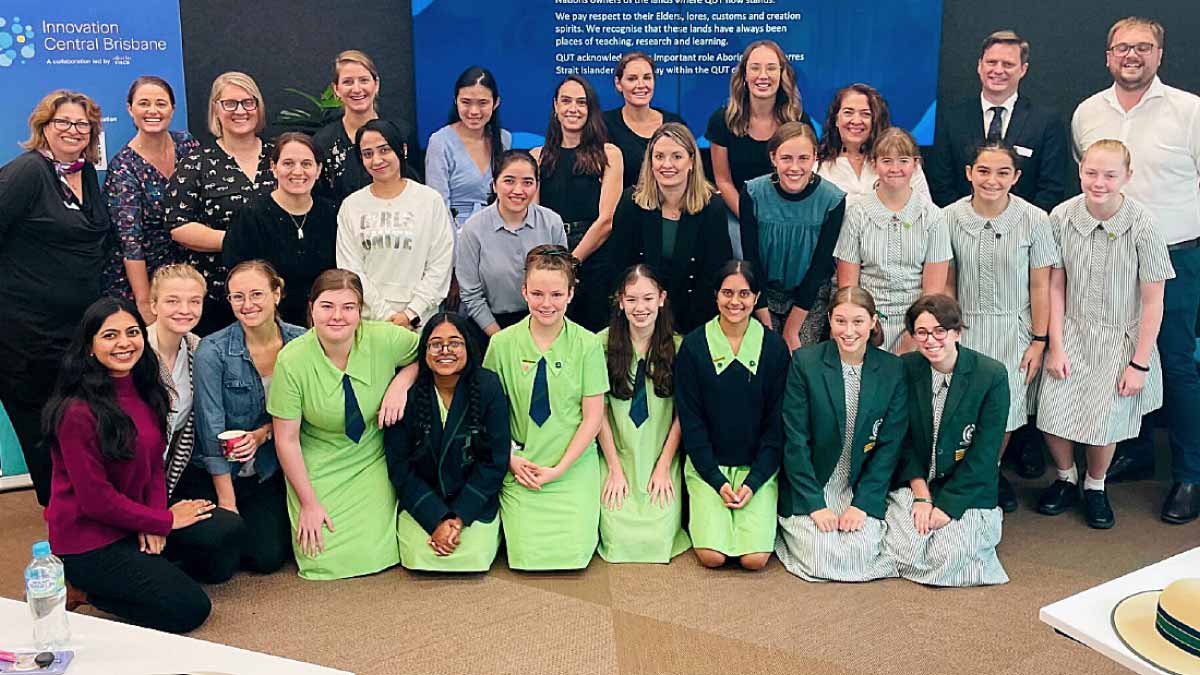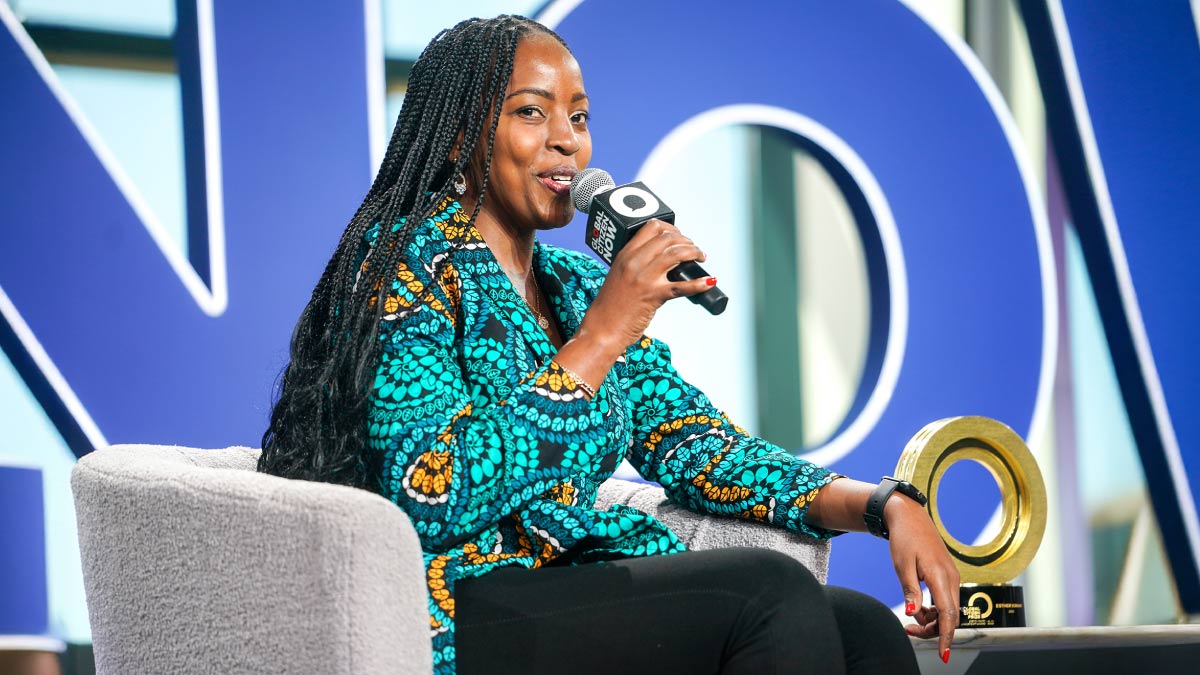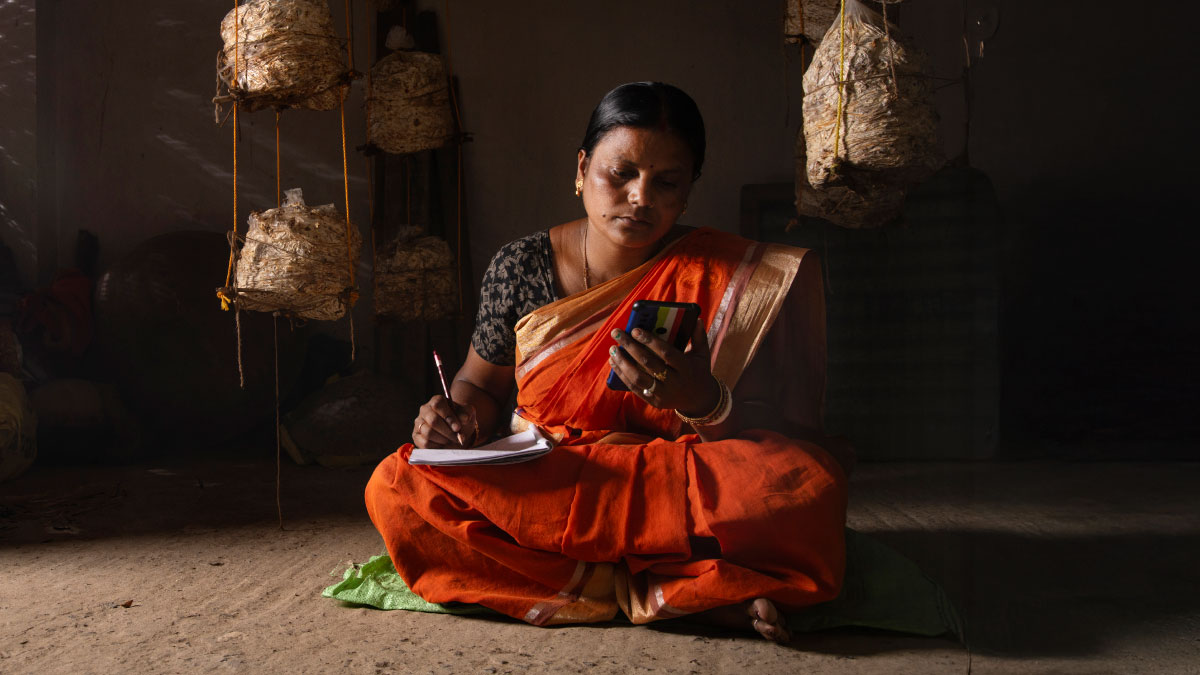When women are empowered with technology skills, we all benefit.
But girls and women still lag in the critical STEM skills that give them a foothold in the tech industry. Given the capabilities and strengths women bring to the table, that’s a loss that businesses — and the world — can’t afford as we strive toward a fully inclusive future.
Girls in ICT Day is a chance to show girls and women what’s possible, spotlighting role models, and offering the concrete educational and upskilling opportunities that will redress the gender imbalance in tech and other industries.
We spoke with Laura Quintana, vice president and general manager of the Cisco Networking Academy, one of the largest purpose-driven, skills-to-jobs training programs in the world, about the great achievements of her organization — and her commitment to empowering millions more women around the globe in years to come.
Thank you, Laura! What are some of the key reasons why girls continue to lag behind boys in the kinds of STEM skills that lead to a career in ICT?
There are many, but I'll just highlight a few. There are still stereotypes and biases that women and girls are exposed to from an early age. How many times have we heard things like girls aren't good at math? This is not true and it can discourage girls from pursuing STEM and engineering and technology related fields. Another is a lack of role models. If you don’t see individuals like yourself, you may not envision yourself in those roles. And a third is a lack of access to educational opportunities, especially for underrepresented communities.
It's also important to note that up until age eight, there’s really no difference between girls and boys when it comes to confidence. In a best-selling book called The Confidence Code, girls’ confidence drops 30 percent between the ages of eight and 14 — prime time when girls are in schools and discovering what they’re good at doing. By helping girls and young women “see what they can be,” we can also help them gain confidence as they explore their futures — including opportunities in technology.
What impact does the gender imbalance have on technology and other industries? And how are businesses missing out?
Whether it’s the developing or developed world, there are missed opportunities to innovate. Study upon study tells us that when you have more diverse perspectives, you can build more innovative and better products. AI is just one example. Without women and diverse voices at the table, products don’t represent a diverse population, at a time when AI is helping to drive important decisions on everything from hiring to product safety.
Another area in which businesses are missing out is in attracting and retaining talent. Without a diverse workplace, it’s more difficult to attract women and diverse talent. Diverse talent begets diverse talent.
Girls in ICT Day is a great way to highlight solutions to the gender imbalance in tech. What are some key initiatives that Cisco is planning?
We are excited to celebrate Girls in ICT Day on April 27 through our Women Rock IT program. Our team does a fabulous job of showcasing and highlighting those important female role models and the changes they are driving in the world, whether it’s business, societal, or environmental.
Speaking of environmental impact. Climate change is one of the biggest challenges facing our world today. How are we highlighting the role that women can play on Girls in ICT Day?
In this year’s Girls in ICT Day program, the focus will be on protecting our planet together. We will go around the world to feature women who are playing a significant role in helping to combat climate change. I’m incredibly excited about our speaker line up. One of those speakers is Allison Wolfe, the founder and CEO of Vibrant Planet. Allison is doing amazing work to restore damaged ecosystems and support carbon removal, so that forests can thrive. She will be talking about the incredible use of technology to prioritize efforts around land management. Cisco’s own Mary de Wysocki, an amazing colleague and a dear friend of mine, will talk about building resilient and more sustainable communities. She was named Cisco’s first-ever chief sustainability officer last year. Mary and teams across Cisco are doing incredible work as we all strive to achieve the goal of net zero carbon emissions by 2040. And, you can see all of our speakers in the line up on our Girls in ICT Day website.
Girls in ICT Day is also a great opportunity for Cisco’s Networking Academy, which you lead. How is it expanding its effort to share these abilities with more women?
This year, we celebrate 25 years of impact. In the past two and half decades, we’ve reached 17.5 million learners around the world. As part of our anniversary celebration, we’ve established a new goal — to reach another 25 million people over the next 10 years. It’s very much aligned with Cisco’s purpose: to power an inclusive future for all. With the help of our unmatched partner ecosystem, which includes governments, academic institutions, employers, and nonprofits, we will be reaching more women and more underserved communities. We’re proud that since 1997, 26 percent of our learners have been female. So, that’s over 4.6 million women who have been empowered by the Networking Academy program. We are determined to continue to expand and grow our reach.
Any success stories that you could share so far?
We have so many impact stories from around the world. We’ve worked with the U.S. Department of Commerce to support an initiative to bring free digital upskilling opportunities to women in IPEF-participating countries, and we pledged digital training for 50,000 women annually in Brunei, Fiji, India, Indonesia, Malaysia, Philippines, and Thailand through 2032. Another is in Mexico where we’ve worked with the Ministry of Economy and Ministry of Labor on a program that’s focused on digital skills for women over the age of 16. In phase 1 of that program alone, 57,000 women participated. In Scotland, we have established a partnership between Cisco, Scottish Women in Technology (SWiT), and Glasgow Caledonian University to provide free cybersecurity training for unemployed and underemployed women.
Networking Academy also supports incarcerated women, right?
Yes, we work with correctional facilities around the world. For example, in Minnesota, in the U.S., we are working with a women's prison to educate women with networking skills. So when they are released from prison, these women will have highly employable skills, and an opportunity to change their lives and the lives of their families.
What do you see for the future of Networking Academy — and its impact on the next generation of women in tech?
I’m particularly excited about the goal we’ve set to reach more people, especially those who are underrepresented and underserved. We will continue to innovate to ensure that we provide individuals with skills for in-demand jobs as we strive to reach 25 million more people over the next 10 years. We want to reach more and more women and girls at younger ages, wherever they are, even if they only have a mobile device. And we’re constantly innovating with things like gamification and adaptive learning. Those are just some of the things that get me excited. As I look into the future, we can help the next generation of women and learners at scale and make a real difference toward workforce equality.





